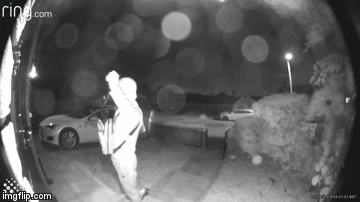Has no one explained to Donald Trump how the Streisand Effect works yet? His campaign has apparently been sending laughably ridiculous threat letters to various TV stations that have been airing an advertisement put together by a group called Priorities USA, criticizing the President's handling of the coronavirus pandemic. The ad highlights Trump's repeated statements playing down the virus and insisting that he had things under control, even as the numbers of infected started to rise exponentially. It's a pretty effective ad. You can see it here.
Priorities also posted the ad to Twitter, and according to a Fox News article, the campaign has also asked Twitter to "flag a nearly identical ad... but the social media giant refused."
The letter is amazing in three separate, but equally dumb ways. First, it focuses solely on just one of the lines that the ad quotes Trump saying: "this is their new hoax." He did say that -- as the letter from his campaign readily admits. Their complaint is that the statement is out of context, and that what Trump was calling a hoax was actually the politicization of the virus response efforts. As the letter notes, here's the statement in full context, that Trump made on February 28th:
Now the Democrats are politicizing the coronavirus. You know that, right? Coronavirus. They’re politicizing it. We did one of the great jobs, you say, “How’s President Trump doing?”, “Oh, nothing, nothing.” They have no clue, they don’t have any clue. They can’t even count their votes in Iowa, they can’t even count. No, they can’t. They can’t count their votes. One of my people came up to me and said, “Mr. President, they tried to beat you on Russia, Russia, Russia.” That didn’t work out too well. They couldn’t do it. They tried the impeachment hoax. That was on a perfect conversation. They tried anything, they tried it over and over, they’ve been doing it since he got in. It’s all turning, they lost. It’s all turning, think of it, think of it. And this is their new hoax. But you know we did something that’s been pretty amazing. We have 15 people in this massive country and because of the fact that we went early, we went early, we could have had a lot more than that.
So, here's the problem. He absolutely said that "this is their new hoax" which he is quoted as saying. The fact that he's referring to the politicization rather than the virus itself is not nearly enough for the ad to violate any possible law. Even in context, it's a problematic statement, as what he's complaining about is the fact that many people were raising alarm bells and he was trying to play down that the whole issue was a problem. As such, it's still pretty damning.
But the fact that the letter literally spends three pages whining about just the "hoax" line, while not mentioning any of the rest of the ad is them totally conceding all of the other moronic stuff the President has said. Indeed, one of the lines -- the "15 people" line -- is also in the ad, and the Trump campaign apparently has no problem with you knowing that he completely downplayed how many people were going to be impacted by COVID-19.
The second dumb thing about the letter, of course, is that the campaign just called a shit ton of attention to it. The ad got some attention, but now it's getting way way way more attention. And even if you took out the hoax line, it's a pretty damning account of a President who refuses to take responsibility or to recognize the seriousness of what has happened under his watch.
The third dumb thing about it is that this is the Trump campaign. They're famous for posting and highlighting selectively edited videos of people they dislike. Hell, at around the same time they were apparently sending this letter, the campaign's Twitter feed posted a heavily edited video of Joe Biden, presenting his recent TV appearances much more out of context than anything in the Priorities ad. Hilariously, the letter cites a bunch of fact checking sites -- including The Washington Post, a company that the campaign itself is currently suing, and which Trump himself regularly accuses of publishing fake news about him. And, yet, if we were to look through the fact check sites quoted in the letter, we'd find that they regularly claim that Trump himself is spewing false information -- and that's never ever stopped Trump, so why should it stop his opponents?
And that's not even getting into why the threat is legally nonsensical -- claiming that failing to take down this add "could put your station's license in jeopardy." This is just silly. Airing political ads that contain false information has been controversial, but is mostly legally protected. Attempts to put in place legal requirements for "truth" in political advertising have been regularly struck down. Notably, the letter from the Trump campaign ignores that, and focuses entirely on cases regarding truth in commercial advertising. But not political advertising.
Also, threatening a TV station that you will have its license to broadcast removed for airing a political opponent's ad is just, in general, a really bad look. It seems likely that most TV stations will dump this letter in the garbage bin where it belongs, but in the meantime, the Trump Campaign has just Streisanded this ad into a ton more views.
Permalink | Comments | Email This Story

 This is a worthwhile video of evangelist Perry Stone warming up with some repetitious religious phrases, then proceeding to speak in tongues (Glossolalia) and moan while casually scrolling through his phone for a full minute during a recorded broadcast at the Omega Center International in Cleveland, Tennessee. That was definitely some pretty wild Holy Spirit action. I liked the guy with the giant cross/battle axe tattoo on his forearm wiping down the table. Also, what's up with that olive oil -- does he drink that straight? Now I hate to jump to conclusions, but I bet you anything he was just reading Geekologie comments out loud.
Keep going for two versions of the video in case one doesn't work (the real phone use starts around 0:30) while I insist I can speak in Parseltongue even though I'm a Ravenclaw.
This is a worthwhile video of evangelist Perry Stone warming up with some repetitious religious phrases, then proceeding to speak in tongues (Glossolalia) and moan while casually scrolling through his phone for a full minute during a recorded broadcast at the Omega Center International in Cleveland, Tennessee. That was definitely some pretty wild Holy Spirit action. I liked the guy with the giant cross/battle axe tattoo on his forearm wiping down the table. Also, what's up with that olive oil -- does he drink that straight? Now I hate to jump to conclusions, but I bet you anything he was just reading Geekologie comments out loud.
Keep going for two versions of the video in case one doesn't work (the real phone use starts around 0:30) while I insist I can speak in Parseltongue even though I'm a Ravenclaw.




 This
This 




 This is a video from Youtuber LockPickingLawyer (how much to go wipe a crime scene clean for me?)
This is a video from Youtuber LockPickingLawyer (how much to go wipe a crime scene clean for me?) 




